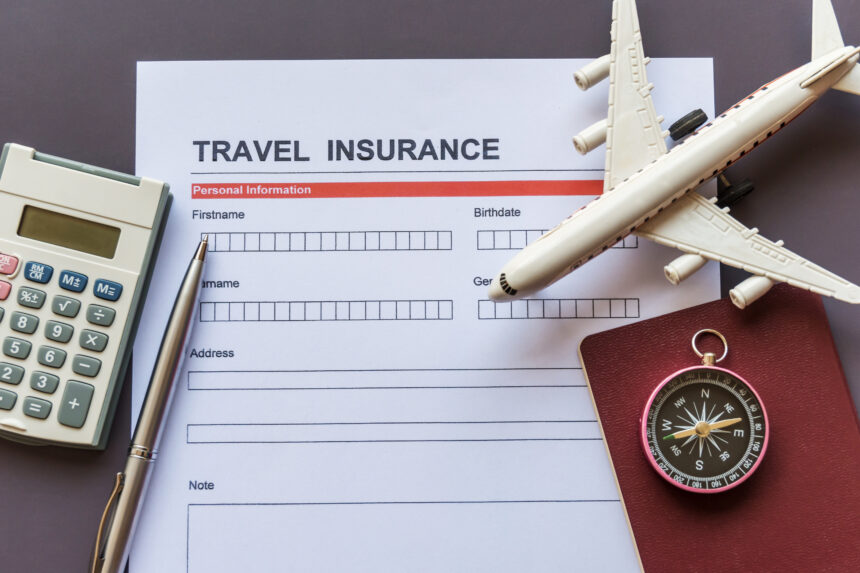Flight disruptions, lost bags, a sudden illness—unexpected issues can ruin a trip and your budget. This friendly guide explains coverage types, exclusions, how to compare policies, and exactly what to do if you need to file a claim.

Start by deciding what you actually need from travel insurance: medical emergencies abroad, trip cancellation or interruption, baggage protection, rental car coverage, or all of the above. Your goal isn’t the biggest policy—it’s a policy that fits your trip profile and budget.
Travel Insurance: What It Usually Covers
- Emergency medical & evacuation: the most important part of travel insurance if you’re heading somewhere with limited healthcare or high private costs.
- Trip cancellation/interruption: nonrefundable prepaid costs if you must cancel/interrupt for a covered reason (illness, severe weather, etc.).
- Baggage & personal effects: theft, damage, or delay allowances; limits per item and total caps apply.
- Delay coverage: meals/hotel when your flight is significantly delayed beyond policy thresholds.
- Accidental death & dismemberment: a benefit some travelers skip if they have similar coverage elsewhere.
What’s Commonly Excluded (Read This Twice)
- Pre-existing medical conditions: many policies exclude them unless you buy within a “look-back” window or add a waiver.
- Risk activities: mountaineering, off-piste skiing, motor sports—often covered only with an adventure add-on.
- Foreseeable events: strikes or storms announced before purchase rarely qualify.
- Unlicensed transport or reckless behavior: injuries on unlicensed scooters or when intoxicated are commonly excluded.
How to Choose the Right Policy (No Jargon)
- List risks by trip type. City break vs. trek vs. cruise. Match travel insurance to activities, distances from hospitals, and prepaid costs.
- Set medical & evac limits first. For international trips, pick limits high enough that travel insurance handles private hospital care and medical evacuation if needed.
- Pick cancellation cap by your nonrefundable spend. Insure what you can’t afford to lose; don’t overbuy.
- Check adventure sport riders. If you’ll ski, dive, or hike at altitude, add the right rider now—not at the airport.
- Compare deductibles and claim rules. Lower premiums often mean more paperwork or stricter documentation. Decide what you’ll tolerate.
- Confirm baggage terms. Expensive items may need separate declarations; that’s where travel insurance fine print matters (per-item caps, proof of ownership).

Single-Trip vs Annual Multi-Trip
Frequent travelers often save with annual policies, but read the maximum trip length (e.g., 30–90 days per journey) and region limits. Occasional travelers usually get better value with a single-trip plan tailored to the itinerary.
Medical Care Abroad: How Payment Actually Works
In many destinations you must pay first and claim later, so travel insurance should include a 24/7 assistance line that can guarantee payment to certain hospitals. Save those numbers offline, and know the nearest clinic to your hotel before day one.
Trip Cancellation vs “Cancel for Any Reason” (CFAR)
Standard cancellation requires a covered reason; CFAR lets you back out for almost any reason but reimburses a lower percentage and must be purchased soon after your first deposit. Decide early if travel insurance with CFAR is worth the premium based on your uncertainty and costs.
Rental Cars & Other Add-Ons
Some policies bundle collision coverage for rental vehicles, but your itinerary might be better served by a dedicated waiver at the counter or credit-card benefits. Align travel insurance with your “Car Rental Insurance Explained” checklist to prevent overlapping coverage.
Claims: A Step-by-Step Playbook
- Call assistance first. For emergencies, your travel insurance hotline can direct you to in-network care and start documentation.
- Collect evidence. Police/loss reports, airline delay letters, medical notes, receipts, photos of damaged items.
- File quickly. Many policies require notice within a short window; upload scans and keep originals.
- Track status. Note claim numbers, people you spoke with, and follow-up requests in one document.

Money-Saving Tips (Without Cutting Protection)
- Buy early. Some benefits (e.g., pre-existing condition waivers) trigger only if travel insurance is purchased shortly after your first trip payment.
- Right-size cancellation limits. Insure nonrefundable costs, not optimistic add-ons you could cancel or rebook for free.
- Use your existing cover. Credit cards and health plans sometimes fill gaps—coordinate instead of duplicating.
Pre-Trip Checklist (Copy/Paste)
- Assistance phone numbers saved offline
- Nearest hospital/clinic pinned in maps
- Receipts and proof of ownership for valuables
- Policy PDF downloaded; claim deadlines noted
- Copies of prescriptions and a brief medical summary
When You Might Skip or Scale Back Travel Insurance
Short, domestic trips with refundable bookings and strong health coverage may justify a minimal plan—just make sure your assumptions hold. If anything changes (nonrefundable tours, remote destinations, adventure activities), revisit travel insurance before you depart.
Related Guides on Bulktrends
- Travel eSIM Guide: Costs, Coverage & Setup
- No-Fee Travel Money: Cards, ATMs & Hidden FX Costs
- Car Rental Insurance Explained: CDW vs LDW vs Liability
- Remote Work Abroad: Internet, eSIMs & Backup Power
Authoritative External Resources (dofollow)
- UK Government — Foreign Travel Insurance Guidance
- CDC — Travel Health & Insurance Basics
- NAIC — Travel Insurance (Consumer Guide)
- FTC — Travel Tips & Consumer Advice
Disclaimer: Coverage details vary by country and insurer. Always confirm current terms, limits, exclusions, and claim deadlines in your policy documents.






